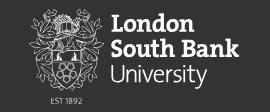About Architecture Msc in London South Bank University (LSBU)
MSc Architecture is a specialised programme designed to develop digital design and practical manufacturing skills. It builds on the ethos of rigorous and directed design studio tuition of LSBU’s established RIBA part 1 and 2 degrees. It also emphasises the value of detailed and analytical research and the expression of this through structured extended writing.
You’ll extend your understanding of advanced architectural design and progressive contextual urbanism through studio- and workshop-based projects. Tutorials in the design studio and analogue and digital workshops, as well as instruction in advanced design software, will help you define and enhance your personal response to architectural challenges.
The course connects 2D and 3D representations (drawing and physical modelling) with an understanding of digital fabrication and manufacturing, and you’ll have the opportunity to develop and make architectural components using the onsite facilities of the DARLAB(Digital Architecture and Robotic Lab).
You’ll also consider architectural history and theory, and evaluate this to develop your own position in the form of an extended written project on a subject of your choice. For your final design project you'll develop a proposition for a complex building or buildings, drawing together all your learning to highlight the relationships between theory, design and technology.
We're ranked 1st for research intensity in Architecture amongst London modern competitors (Complete University Guide 2019).
Employability
- Digital design and practical manufacturing skills are applicable to, and sought after in a very broad range of employment opportunities in architecture and other design-related activities, including visualisation, gaming, animation, media, production engineering, and industrial design.
- The course is not intended to lead to a professional qualification, although it reflects the criteria and graduate attributes used by RIBA to deliver their validation services to programmes in architecture.
- Curriculum developed to reflect (but not meet) professional and statutory body requirements.
- First degree in Architecture (2:1 or better) from an international university, which is validated by a recognised national or regional body; or
- First degree in Architecture (2:1 or better) from an RIBA recognised programme based outside the UK, which is validated as equivalent to RIBA part 1; or
- An excellent first degree in architecture from an RIBA recognised programme based in the UK, which offers the RIBA part 1 professional award; or
- Exceptionally, an excellent first degree in a design-based subject closely related to architecture. The school is committed to a policy of inclusivity and opportunity, each application and applicant will be considered on the merits of their wish to learn, and to explore architecture at higher degree level.
London South Bank University (LSBU) Highlights
| University Type |
Public University |
| Campus Setting |
Urban |
| Establishment Year |
1992 |
| No. of Schools |
7 |
| No. of Campuses |
2 |
| No. of Residences |
4 |
| Graduate Job Rate |
89% |
| Student-Teacher Ratio |
17:1 |
| External Income |
£2 million |
| Cost of Attendance |
£14,780 |
| Applications Accepted |
Online |
| Work-Study |
Not available |
| Intake Months |
January and September |
| Mode of Program |
Classroom and online |
London South Bank University Average Tuition Fees And Other Expenses
| Course |
Tuition Fee |
| Undergraduate |
£13,780 |
| MSc; MA; PG Diploma |
£13,780 |
| MBA |
£15,100 |
| MPhil; PhD |
£13,780 |
The weekly cost of living for students living in hostel accommodation and private accommodation is, respectively, £206–356 and £225–515.
London South Bank University Admission Process
- Application: The international students may apply by filling the LSBU application form. In absence of the preferred course in the list, UG and PG students may apply, respectively, via ‘UCAS’ and ‘UKPASS’.
- Application deadline:
UG Courses: January 15 (UCAS); June 30 (UCAS Extra)
PG Courses: There is no fixed closing date for PG courses.
- General requirements: Academic transcripts, official degree completion certificate, English language certificate.
- Additional requirements: Passport copy, current visa, 2 academic references with official stamp, research proposal (PG research students), CV.
- English Proficiency Test: The students need to demonstrate English language proficiency through the tests given below.
| Test |
UG |
PG |
| IELTS |
6.0 |
6.5 |
| PTE Academic |
52 |
60 |
| GCSE/O-Level/IGCSE |
Grade C |
Grade C |
| Cambridge English: Advanced |
Grade C |
Grade C |
